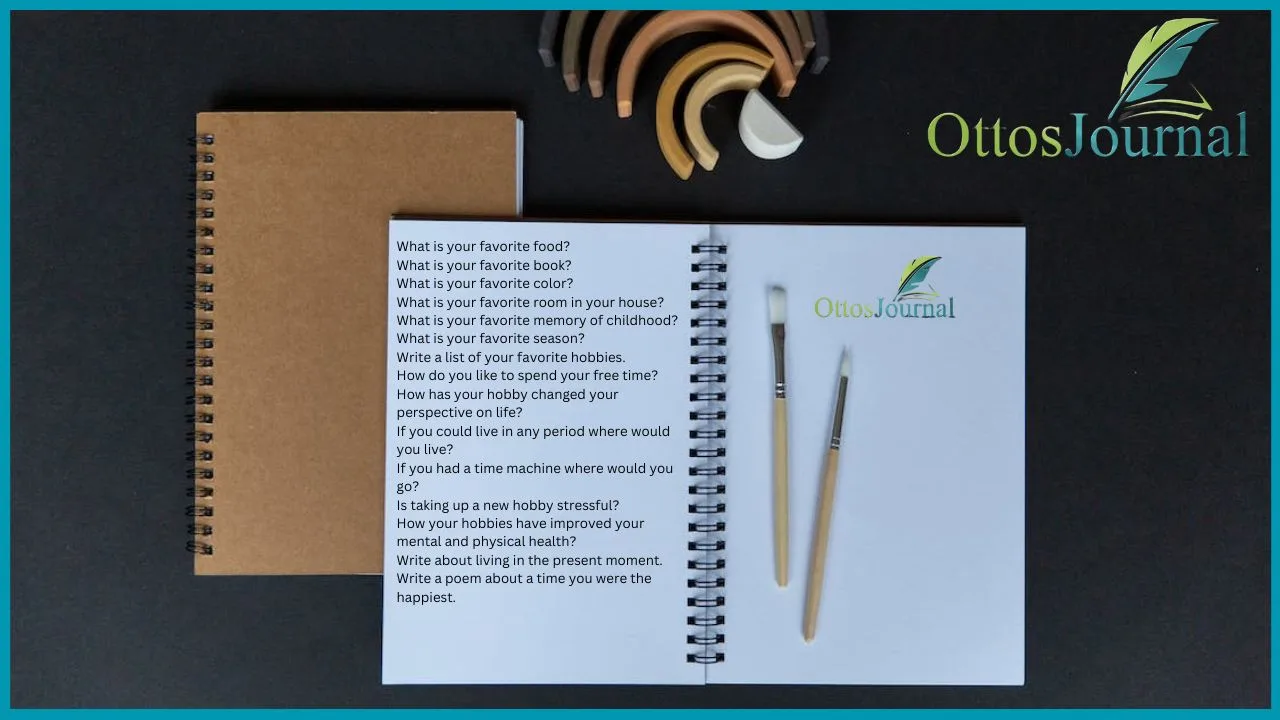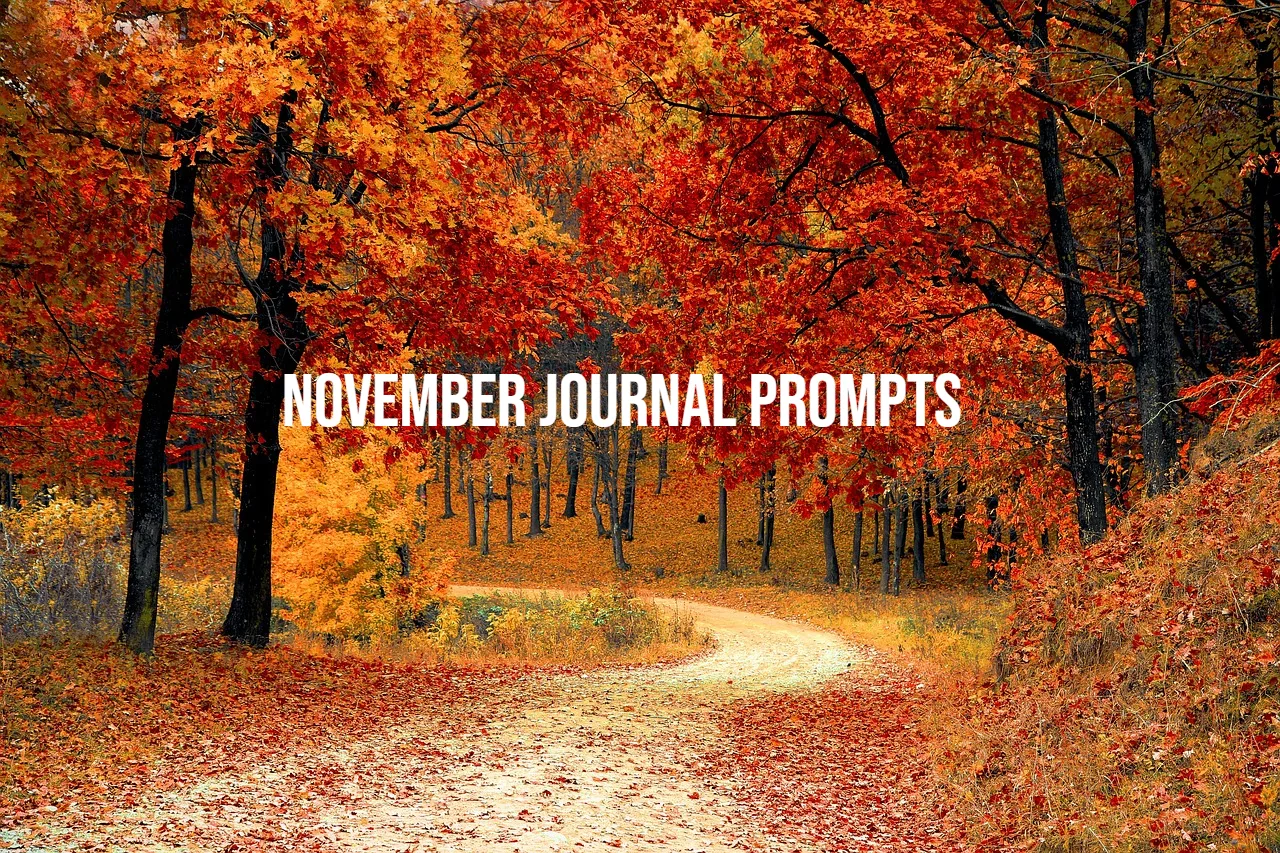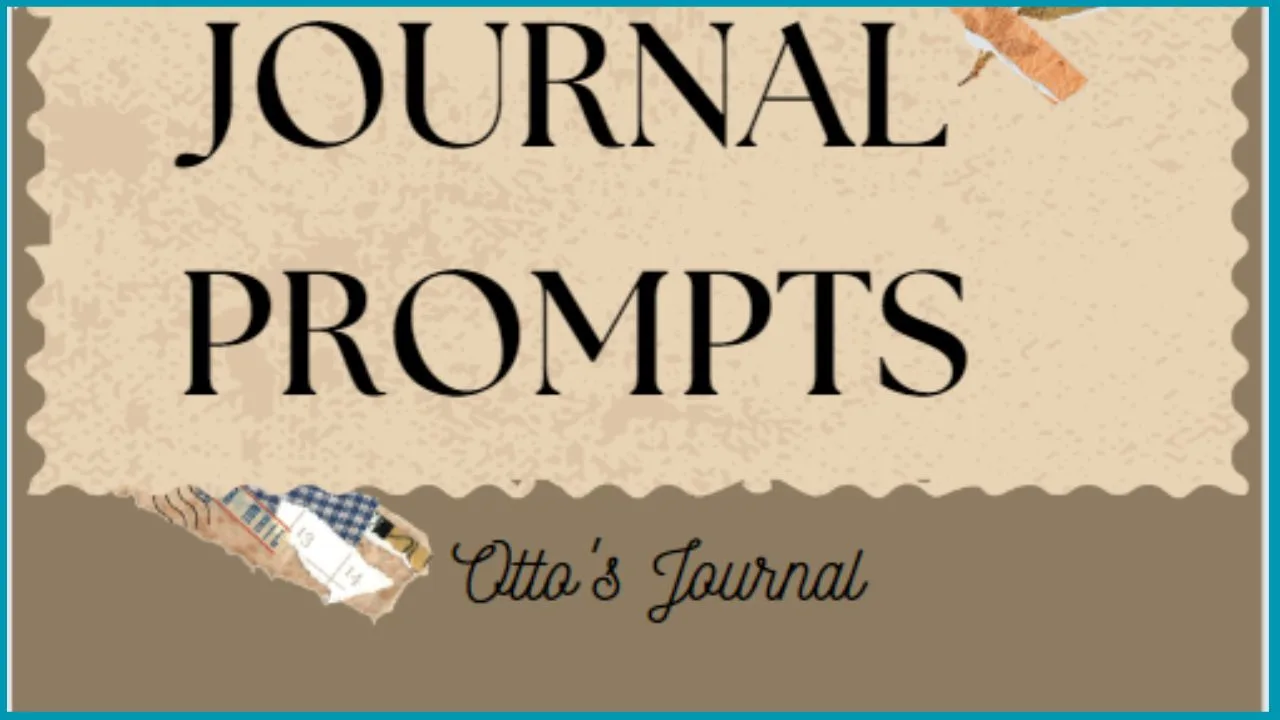If you’re looking to incorporate mindfulness into your daily routine, journaling can be a great way to start. Mindfulness journal prompts for adults can help you organize your thoughts, reduce stress, and be more present in the moment. With journaling, you can take a few minutes each day to reflect on your thoughts and feelings, and gain a deeper understanding of yourself. In this blog post, I will share with you 55 mindfulness journal prompts for adults to help improve your self-awareness and inner peace.
One of the benefits of mindfulness journaling is that it can help you become more aware of your thoughts and emotions. By writing down your thoughts, you can gain clarity and perspective on what’s going on in your mind. Mindfulness journal prompts can help you focus on the present moment and become more aware of your surroundings.
The Art of Mindfulness
Mindfulness is the practice of paying attention to the present moment with openness, curiosity, and non-judgment. It is a form of meditation that has been scientifically proven to reduce stress and anxiety, improve mental health and wellbeing, and increase overall awareness. Mindfulness has been practiced for thousands of years in various cultures and religions, but it has gained popularity in recent years due to its effectiveness in treating mental health issues.
Research has shown that mindfulness meditation can increase the gray matter in the brain, which is responsible for memory, learning, and emotional regulation. It can also decrease the size of the amygdala, which is responsible for the fight or flight response. This means that mindfulness can help you control your emotions and respond to stressful situations in a more calm and rational way.
Benefits of Mindfulness Journaling
Mindfulness journaling is an active practice of acknowledging and observing your thoughts, emotions, and experiences and documenting them in a non-judgmental manner. It is a form of self-reflection that can help you gain a deeper understanding of yourself and your surroundings. Mindfulness journaling has many benefits, including:
- Reducing stress and anxiety
- Improving mental health and wellbeing
- Increasing self-awareness
- Enhancing creativity and problem-solving skills
- Boosting memory and learning
- Improving relationships with others
By writing down your thoughts and experiences, you can gain a better understanding of your emotions and how they affect your behavior. This can help you identify patterns and triggers that cause stress and anxiety, and develop strategies to cope with them. Mindfulness journaling can also help you focus on the present moment and appreciate the little things in life, which can improve your overall happiness and wellbeing.
Mindfulness is a powerful tool that can help you improve your mental health and wellbeing. Mindfulness journaling is a simple and effective way to incorporate mindfulness into your daily routine and reap its many benefits. By practicing mindfulness journaling regularly, you can develop a deeper understanding of yourself and your surroundings, and live a more fulfilling and meaningful life.
Getting Started with Mindfulness Journaling
If you’re new to mindfulness journaling, it can be challenging to know where to begin. Here are some tips to help you get started:
Choosing Your Journal
The first step is to choose a journal that you feel comfortable using. Whether you prefer to write by hand or type on a computer, there are many options available. If you choose to write by hand, consider the type of pen you will use and the quality of the notebook. Make sure that you choose a notebook that feels good in your hands and has enough space for your writing.
Creating a Mindful Environment
Creating a mindful environment can help you get into the right mindset for journaling. Find a quiet space where you won’t be interrupted, and consider adding some calming elements, such as candles or soft music. You could also try some deep breathing exercises or meditation to help you relax and focus.
Journaling Techniques for Beginners
If you’re new to journaling, it’s important to start small and make it a habit. Set aside a specific time each day for journaling, and try to write for at least five minutes. Write about whatever comes to mind, without worrying about grammar or spelling. You could also try using mindfulness journal prompts to help guide your writing.
Remember, the most important thing is to make journaling a habit. With practice, you’ll find that it becomes easier and more natural, and you’ll start to see the benefits of mindfulness journaling in your daily life.
55 Mindfulness Journal Prompts for Adults

- Reflect on a moment today when you felt at peace.
- Notice any recurring thoughts that may be causing you stress.
- Appreciate a simple pleasure that you experienced today.
- Examine an area of your life where you’d like to be more mindful.
- Acknowledge a recent situation where you reacted mindfully.
- Capture the essence of a meaningful conversation you had recently.
- Identify a personal strength and how it helped you in your day.
- Describe a challenge you faced today and how you felt about it.
- Visualize where you see yourself in five years and what steps will take you there.
- Consider the last time you felt truly grateful and why.
- Record a small victory or success from your day.
- Focus on your breath for a few minutes, then write about the experience.
- Savor a memory that brings you joy and detail it in your journal.
- Question a belief or assumption you hold and explore its origins.
- Observe the emotions you feel at the end of a workday.
- Connect with your intentions for the week and how you plan to fulfill them.
- Release any judgment you have about yourself and write a self-compassionate note.
- Relinquish control over something you cannot change and express your feelings.
- Assess how well you balance work and personal life.
- Cherish a moment of connection with someone close to you.
- Ponder the ways you can bring more mindfulness into your relationships.
- Discover something new about your emotional responses.
- Embrace change by writing about a recent transition in your life.
- Challenge yourself to step out of your comfort zone and reflect on the outcome.
- Investigate the impact of a good deed you performed or witnessed.
- Yield to a moment of silence and note what arises in your mind.
- Anchor yourself in the present and describe what it feels like to be here now.
- Revisit a goal you had set for yourself and evaluate your progress.
- Inquire within about what happiness means to you.
- Absorb the details of your current surroundings and describe them.
- Balance your needs with the needs of others and reflect on how you manage this.
- Expand on what self-care looks like for you and how you can practice it more.
- Kindle a sense of hope by writing about something you’re looking forward to.
- Navigate through your past week and find moments of mindfulness to celebrate.
- Generate a list of things that help you stay grounded in the present.
- Illustrate how you’ve grown over the past year.
- Summon a sense of calm by recalling a place that makes you feel serene.
- Quell your worries by writing about them and then reframing them positively.
- Venture into your thoughts about aging and how you feel about it.
- Harness the power of positive thinking by listing things that went well today.
- Unveil a dream or aspiration you have and the steps you could take toward it.
- Align your daily actions with your core values and reflect on this process.
- Rekindle your interest in a hobby or activity you’ve neglected.
- Yield to the flow of your day and describe how letting go of resistance felt.
- Anchor your reflections on a recent act of kindness you received.
- Reaffirm your personal boundaries and why they are important to you.
- Integrate a new mindfulness technique into your routine and write about its effects.
- Disengage from technology for a period and journal about the experience.
- Venture into the realm of forgiveness, whether it’s forgiving yourself or someone else.
- Kindle your creativity by brainstorming a new project or idea.
- Uncover the reasons behind a recent emotional reaction.
- Summon a sense of gratitude for your health and body.
- Quell any feelings of envy by focusing on your own path and achievements.
- Navigate your feelings about a current world event and its impact on you.
Mindfulness Journal Prompts and Exercises

If you’re looking for a way to integrate mindfulness into your daily routine, journaling can be a great place to start. By setting aside a few minutes each day to reflect on your thoughts and feelings, you can cultivate a deeper sense of self-awareness and gratitude. Here are some mindfulness journal prompts and exercises to help you get started:
Daily Reflections and Gratitude
One of the simplest ways to practice mindfulness is by reflecting on what you’re grateful for each day. By focusing on the positive aspects of your life, you can shift your perspective and cultivate a sense of contentment. Here are some journal prompts to get you started:
- What are three things you’re grateful for today?
- How did you show kindness to yourself or others today?
- What positive experiences did you have today?
Mindful Awareness Practices
Mindfulness is all about being present in the moment and fully engaging with your surroundings. By practicing mindful awareness, you can develop a greater sense of focus and clarity. Here are some exercises to try:
- Take a few deep breaths and focus on the sensation of the air moving in and out of your body.
- Spend a few minutes observing your surroundings without judgment. Notice the colors, textures, and sounds around you.
- Practice mindful eating by savoring each bite of your food and noticing the flavors and textures.
Overcoming Challenges with Mindfulness
Mindfulness can also be a powerful tool for dealing with difficult emotions and negative thoughts. By acknowledging your feelings without judgment, you can learn to accept them and move forward. Here are some prompts to help you work through challenging situations:
- What emotions am I feeling right now? How can I acknowledge and accept them without judgment?
- What are some positive affirmations I can repeat to myself when I’m feeling anxious or stressed?
- How can I reframe a negative situation in a more positive light?
Incorporating mindfulness journal prompts and exercises into your daily routine can help you cultivate a greater sense of self-awareness and gratitude. By setting aside a few minutes each day to reflect on your thoughts and feelings, you can develop a deeper understanding of yourself and your surroundings.
Deepening Your Practice

To deepen your mindfulness practice, it is essential to integrate mindfulness into your daily life. This can be accomplished by making mindfulness a habit. You can start by setting aside a few minutes each day to practice mindfulness journaling. This will help you ground yourself and be present in the moment.
You can incorporate mindfulness into your daily routine by practicing mindful exercise and mindful eating. Mindful exercise involves paying attention to your body and breath while engaging in physical activity. Mindful eating involves being present and fully engaged while eating, paying attention to the taste, texture, and smell of your food.
To further advance your mindfulness practice, you can try using advanced mindfulness techniques. These techniques include body scanning, visualization, and loving-kindness meditation. Body scanning involves focusing on each part of your body, one at a time, and noticing any sensations or feelings. Visualization involves creating a mental image of a peaceful place or situation to help calm your mind. Loving-kindness meditation involves sending love and kindness to yourself and others.
The key to deepening your mindfulness practice is to make it a part of your daily routine. By practicing mindfulness regularly, you can improve your physical health, reduce stress and anxiety, and increase your overall well-being.
Reflecting on Personal Growth and Goals
As you continue your mindfulness journaling practice, it’s important to reflect on your personal growth and goals. This can help you stay motivated and focused on your journey towards a more mindful and compassionate life.
Setting Intentions and Tracking Progress
One way to reflect on personal growth is by setting intentions and tracking your progress towards them. Start by identifying a goal or area of your life you want to improve. This could be anything from practicing more self-compassion to improving your communication skills.
Next, write down your intention and create a plan to achieve it. Break your goal down into smaller, achievable steps and track your progress along the way. Consider using a table or list format to keep track of your progress.
Remember to be kind and patient with yourself as you work towards your goals. Celebrate your successes, no matter how small, and use any setbacks as an opportunity to learn and grow.
Navigating Life Changes with Mindfulness
Life is full of changes, both big and small. Whether you’re starting a new job, moving to a new city, or experiencing a personal loss, mindfulness can help you navigate these changes with grace and compassion.
Start by taking a few deep breaths and grounding yourself in the present moment. Allow yourself to feel any emotions that come up, without judgment or resistance. Use your journal to explore your thoughts and feelings, and to identify any patterns or triggers that may be causing stress or anxiety.
Remember to practice self-compassion and kindness as you navigate these changes. Be patient with yourself, and allow yourself to feel whatever emotions come up. With mindfulness and self-reflection, you can navigate life’s changes with grace and resilience.
Frequently Asked Questions

How can a mindfulness journal benefit my mental health?
Mindfulness journaling can benefit your mental health in many ways. It can help you increase your self-awareness, reduce stress and anxiety, and improve your overall well-being. By writing down your thoughts and feelings, you can gain clarity and insight into your emotions and behaviors. This can help you identify patterns and triggers that may be impacting your mental health, and develop strategies to manage them.
What are some daily prompts I can use to enhance my mindfulness practice?
There are many daily prompts you can use to enhance your mindfulness practice. For example, you can start by writing down three things you’re grateful for each day. You can also write down your intentions for the day, or reflect on a positive experience you had. Another option is to write down your thoughts and feelings in response to a specific question or prompt, such as “What am I feeling right now?” or “What can I do to take care of myself today?”
Can mindfulness journaling help in managing stress and anxiety?
Yes, mindfulness journaling can be a helpful tool for managing stress and anxiety. By writing down your thoughts and feelings, you can gain a better understanding of what’s causing your stress and anxiety, and develop strategies to manage it. You can also use mindfulness journaling to practice relaxation techniques, such as deep breathing or progressive muscle relaxation.
What are some thought-provoking prompts to explore deeper self-awareness through journaling?
There are many thought-provoking prompts you can use to explore deeper self-awareness through journaling. For example, you can write about your values, beliefs, and goals, and how they impact your life. You can also reflect on your past experiences and how they’ve shaped who you are today. Another option is to write about your strengths and weaknesses, and how you can use them to achieve your goals.
How do I start a mindfulness journal and maintain consistency?
To start a mindfulness journal, you can simply grab a notebook and start writing down your thoughts and feelings. It’s important to set aside time each day to journal, even if it’s just for a few minutes. You can also use prompts or questions to guide your writing. To maintain consistency, try to make journaling a part of your daily routine, and find a time and place where you can focus and be present.
What types of mindfulness journaling exercises are recommended for personal growth?
There are many types of mindfulness journaling exercises that are recommended for personal growth. For example, you can write down your goals and track your progress towards them. You can also reflect on your values and how you can align your actions with them. Another option is to write down your fears and how you can overcome them, or write a letter to your future self. The key is to find exercises that resonate with you and help you achieve your personal growth goals.




